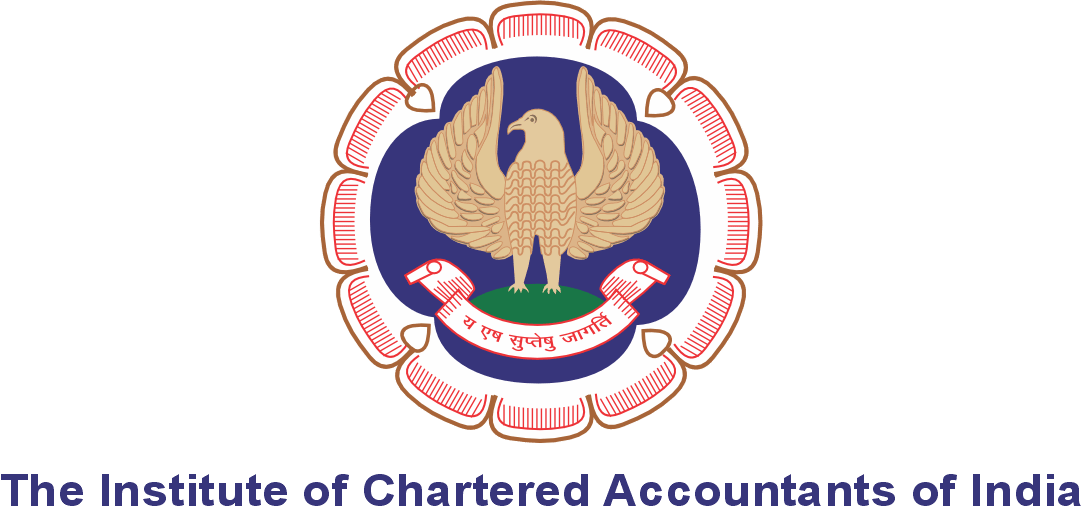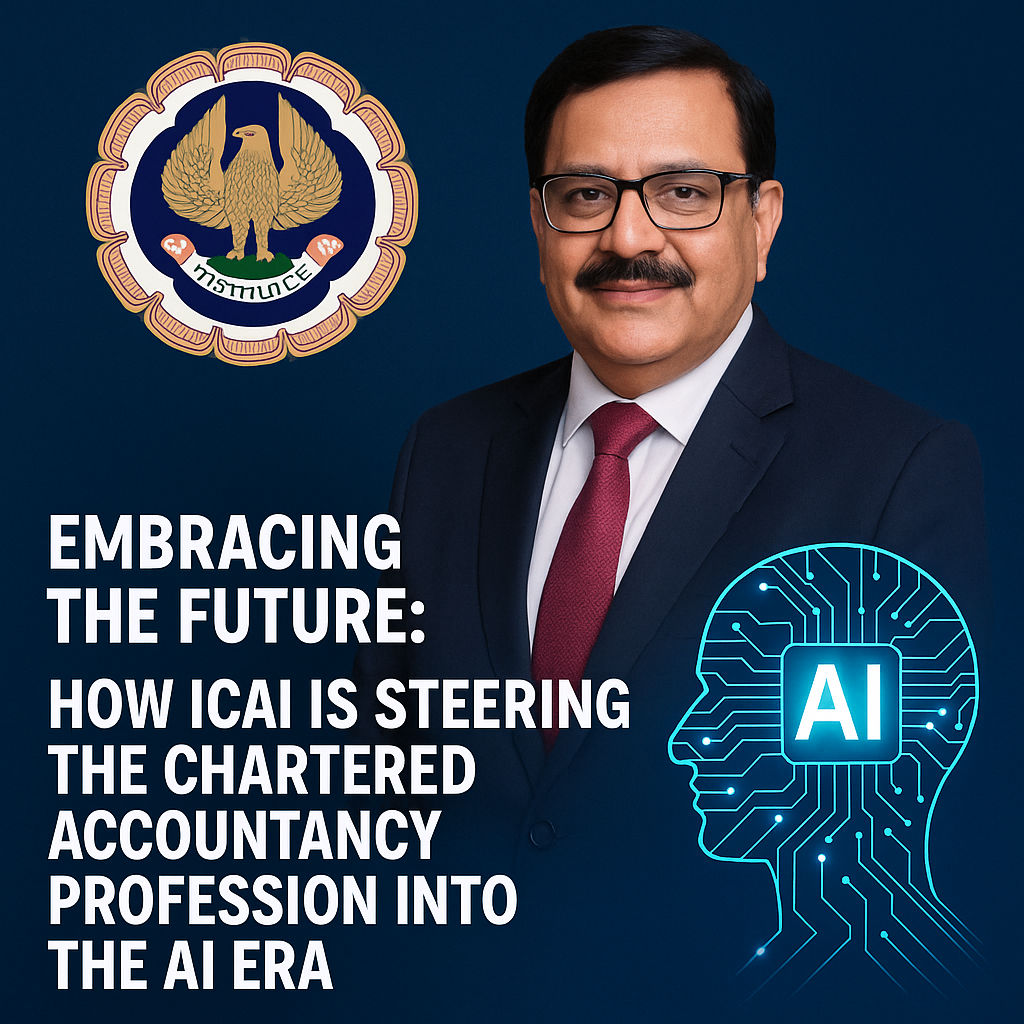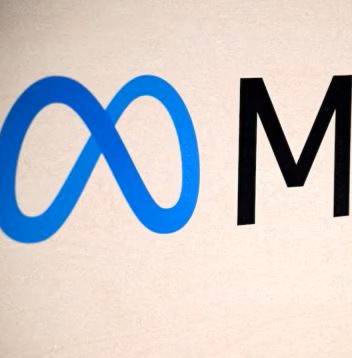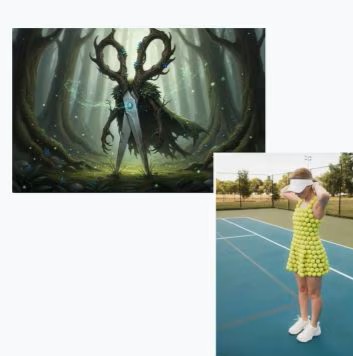1. The Dynamic Profession: From GST to Global Standards
Charanjot Singh Nanda opened the conversation by pointing out the inherent dynamism of the accounting profession: from managing Goods & Services Tax (GST) compliance to mastering international financial reporting standards (IFRS), practitioners must continuously upskill. Staying abreast of regulatory reforms—both domestic and global—is no longer optional but essential. This, he said, is the core responsibility of ICAI: to produce chartered accountants who uphold best practices and are resilient in the face of change.
He noted that the evolving demands of clients, regulators, and markets require CAs to expand their skillsets beyond conventional bookkeeping and audits—into areas such as data analytics, ESG reporting, digital assurance, and cross-border advisory.
2. AI: Enabler, Not Replacement
One of the most pressing debates in the profession today centers on artificial intelligence. When asked whether AI poses a threat to CAs, Nanda was categorical:
“AI is nothing more than a faithful servant. It is an enabler, not a replacement. … if you have original intelligence, artificial intelligence cannot harm you.” He emphasized that the principle is clear—humans must remain the thinkers, strategists, and ethical guardians; AI is a productivity booster. With this mindset, ICAI is actively integrating AI into its operations and member services, through digital papers, mobile apps, e-newsletters, and more.
At the AI Innovation Summit (AIS 2024), ICAI convened global experts, technologists, and policy thinkers to debate AI’s role in accounting, reinforcing its commitment to embed AI in the profession.
3. Curriculum Overhaul & Alignment with NEP
ICAI’s curriculum is being reimagined to reflect evolving global benchmarks and national policies. As part of its New Scheme of Education and Training, ICAI is aligning the CA course with the National Education Policy (NEP) 2020, and bringing in elements of technology, hands-on training, and global equivalence.
In recent “brainstorming meets,” President Nanda reaffirmed that academic excellence must now go hand in hand with practical learning, soft skills, and technology integration. The CA of tomorrow, he said, should be a multidimensional professional—trusted advisor, tech-savvy leader, global citizen, and ethical custodian.
Further adjustments to CA exams may follow to support the NEP-aligned curriculum.
4. AURA: Building AI Fluency Among Students
To operationalize its AI vision, ICAI has launched AURA (AI Understanding for Rising Achievers)—a dedicated program for CA students at both Intermediate and Final levels. Workshops under AURA are being organized across India (and international centers such as Dubai) to impart AI exposure in domains like CA-GPT, Canva AI, Google AI Studio, MidJourney, etc.
The workshops are structured with small batch sizes (≈ 50 students) to ensure quality interaction, and are being scheduled on weekends (6 hours) to fit students’ study and articleship commitments.
ICAI is also aiming to reach out to 11 lakh registered students through these AI training sessions.
5. Ethics, Standards, and Governance in the AI Age
While ICAI embraces AI, it is also mindful of the ethical, legal, and governance challenges that accompany it. To this end, ICAI has published a guidance note on the ethical use of AI, helping members and students understand the risk of bias, data privacy, transparency, accountability, and professional integrity.
Moreover, ICAI has established a roadmap for “AI in ICAI”—which frames how its student services, member services, and internal functions will adopt AI responsibly and incrementally.
6. Global Reciprocity & The CA’s Role in a Borderless Economy
One of the major challenges and opportunities for the CA profession is global equivalence of qualifications. ICAI is proactively pursuing mutual recognition agreements (MRAs) and frameworks that allow Indian CAs to practice or engage internationally.
Under Nanda’s leadership, ICAI has approved a draft regulatory framework enabling domestic CA firms to tie up with global counterparts—facilitating joint operations and global outreach.
Such moves help ensure Indian CAs are not confined by geography and remain globally competitive in advisory, audit, taxation, ESG, and cross-border sectors.
7. Challenges Ahead & The Vision Beyond
While the path ahead is promising, numerous challenges remain:
- Ensuring equitable access to AI training across urban and rural regions.
- Bridging the tech infrastructure divide (connectivity, devices) for students.
- Balancing innovation with regulation, especially in emerging AI domains.
- Maintaining the rigorous ethical and professional standards in disruptive times.
Yet ICAI’s roadmap is bold. Under the stewardship of CA Charanjot Singh Nanda, the Institute is striving to future-proof the profession—making Indian CAs not just reactive to change, but proactive architects of the new professional paradigm.
Source:indianexpressGPT







